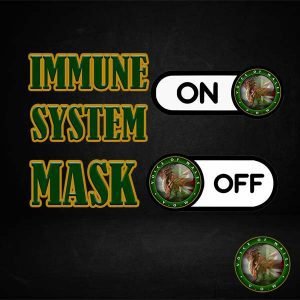
My Response to the Written Article from The Guardian
This article demonstrates how spineless our Politicians and Senior Police officers have progressively become.
Despite constantly bowing down for years from mounting pressure from Woke Politicians and Organisations, they are now being forced to take the knee and lower their standards even further to pretend that the Police service is institutionally racist.
An example of surrendering to bullies, give an inch and they see the weakness and demand a mile. They are surrounded by left wing critics, but the biggest danger is the ‘enemy within’ the promotion process in the British Police service prioritises that all applicants on the promotion ladder demonstrate their devotion to multiculturalism and diversity, their abilities to fight crime and retain the confidence of the majority of the public seemingly less important and increasingly irrelevant.
All internal Police Organisations eg: The College of Policing, National Police Chief council are now totally obsessed with ‘Wokeness’, Race equality, quota systems, diversity, multiculturalism and Political Correctness. And not just content to sitting around the committee rooms discussing Woke topics amongst themselves, they also feel the need to spend thousands of pounds on ‘Special Race Advisors’
Ambimbola Johnson will be earning the money on this occasion. Calling in ‘experts’ and taking orders is now standard practice throughout the UK where the Chief Constables call in Left wing Professors from their local Universities to chair Independent Police Ethics committees. Makes you wonder why the Chief Constables are paid over £150,000, perhaps its to shut up and obey their Political masters?
Britain’s most senior police leaders are considering making a public admission that their forces are institutionally racist, the Guardian has learned.
High-level discussions began on Thursday and come as their special adviser on race says the declaration is needed if promises of radical reform are to be believed by black, Asian and minority ethnic (BAME) communities. More discussions will be held in January, and a decision from police chiefs is expected in February.
Policing has been engulfed in a race crisis with a series of controversies over stop and search and use of force, leaving black people’s confidence lower than white people’s. Police chiefs have admitted this damages their legitimacy and ability to fight crime.
The National Police Chiefs’ Council (NPCC) appointed the barrister Abimbola Johnson to chair an independent board to scrutinise a promised suite of reforms.
A new plan to make policing anti-racist is promised and Johnson said institutional racism had to be admitted. “The plan needs to accept institutional racism, if it is to be anti-racist,” she said. “If the idea is to win the trust of black communities, policing needs to start by acknowledging both the historical and current manifestations of racism in policing.”Policing was first officially labelled as institutionally racist in the 1999 Macpherson report on failings that let the racist killers of the black student Stephen Lawrence escape justice for so long.
The ranks of officers are still disproportionately white, with a smaller proportion of ethnic minority officers in policing than in the general population.
Last year the Metropolitan police commissioner, Cressida Dick, denied policing was institutionally racist, telling MPs it was “not a label I find helpful”. She said: “I don’t think we’re collectively failing. I don’t think [racism] is a massive systemic problem, I don’t think it’s institutionalised, and more to the point I think we have come such a very, very, very long way.”
Johnson said: “Reluctance to admit institutional racism comes from emphasising the comfort of the wrong people over the experience of black people. For this programme to work, it needs the police to have conversations that are uncomfortable for them.”
Sir William Macpherson defined institutional racism as: “The collective failure of an organisation to provide an appropriate and professional service to people because of their colour, culture or ethnic origin. It can be seen or detected in processes, attitudes and behaviour which amount to discrimination through unwitting prejudice, ignorance, thoughtlessness and racist stereotyping which disadvantage minority ethnic people.”
The chiefs of the 43 local forces in England and Wales are split on the issue. Some feel the term labels them all as racist, and is an unwarranted insult given the big improvements they believe have been made since the 1999 Macpherson report.
One senior source at the talks on Thursday said the chiefs were trying to reach an agreement. “Some are worried about sending out a message that nothing has changed since Macpherson.” Another said: “There are polarised views. The discussions were considered and reflective.”
Sir Dave Thompson, the NPCC vice-chair, said they would consider whether to accept that the forces they lead were institutionally racist. “We will look at how we use the language of discrimination and racism with chief constables so that we acknowledge the scale of the challenge that we see to communities, while being able to account for the actions we intend to take,” he said.
Thompson, the chief constable of the West Midlands force, added: “Policing is not free of bias, discrimination and racism. We accept that this is not simply a case of individuals but also about the policies and practices of policing. I am very clear there will be institutional racism issues in policing. There will also be systemic racism, structural racism and also racial disparities that are not due to racism in policing because we police an unequal society.
“There is a concern, set out in the [government’s] commission on race disparity report that the term institutional racism can be too casually used as an explanatory term for all disparity or discrimination. This is why the application of this term requires careful thought.”
Ethnic minority police officers make up 7% of the ranks, compared with 14% of the population. BAME officers are twice as likely to be dismissed as their white counterparts.
Among the public, black people are more likely to be stopped for suspected drugs offences but are less likely to use them. Recent official figures showed the equivalent of one-fifth of male ethnic minority people aged 15-19 were stopped in a single year, with black people seven times more likely to be stopped.
Andy George, the president of the National Black Police Association, said promises were no longer enough and institutional racism needed to be admitted. “A problem can never be truly tackled if it is not clearly identified and it is unclear how their plan could deliver actions to something policing does not truly believe is real,” he said.
The race crisis that has gripped policing led to thousands of people taking to the streets across the UK in support of Black Lives Matter, triggered by the murder of George Floyd by a police officer in the US in May 2020.






0 Comments